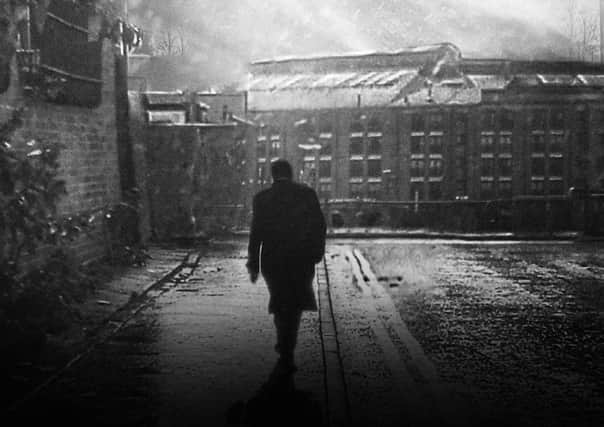Book review: February’s Son, by Alan Parks


We all know how these things work. A body is found and a maverick detective enters stage right – usually having been dragged out of their bed or the boozer. They argue with their superiors, down several drinks, and crack the case in time for last orders. It’s a winning formula – especially when set in Scotland. Tartan Noir is big business. TV producers will likely pour over February’s Son, the second novel by Alan Parks. It follows a well-worn pattern that crime fans will instantly recognise. What makes this story different is the action takes place some 46 years ago. Parks leads us to the Glasgow of 1973, a time and place readers are asked to assume was a more dark and dangerous version of the present.
The protagonist, Detective Harry McCoy, is investigating the murder of a Celtic player killed in gruesome circumstances. You don’t need to be a fan of the game to appreciate the magnitude of such a crime in a city where football rivalries are the main topic of conversation for many. Any cop working such a case requires thick skin and a deep well of self-reliance – two qualities that McCoy has in spades.
Advertisement
Hide AdAdvertisement
Hide AdAll the elements of a classic crime page turner are here. The novel is just waiting to be transferred to the small screen.
While Glasgow has long since transformed itself from a place blighted by post-industrial depression into a thriving creative hub, there are more than enough tower blocks remaining that could be put to use as convincing backdrops. It’s easy to picture McCoy, his tie askew, a dirty raincoat flapping in his wake, as he slams the patrol car door and demands a lift to the next crime scene.
Parks’s writing style is to the point. The plot zips along and there are plenty of dummies and feints to keep crime fans entertained. Yet despite two excitable cover quotes likening Parks to the late, great William McIlvanney, there’s little to attract readers without a passion for the polis. While the novel is set in Glasgow it never fully utilises the city’s dramatic strengths. Portraying the Dear Green Place as somewhere rogues can flourish is a trope repeated endlessly in novels stretching back to the publication of No Mean City in 1935. The dialogue in February’s Son also feels strangely flat – there is little attempt made to capture the Glaswegian dialect. While there is plenty of swearing, none of it is done with the endlessly inventive style characteristic of the city.
A further issue is Parks’ decision to travel back in time. I can’t help but feel the plot would have felt more shocking, and the settings more convincing, if was set in the present day. The trouble with writing about the recent past is there are still plenty of people around who lived through it. Modern historical fiction must paint an accurate picture if it’s going to have any sense of reality – a vital component in any crime thriller.
Parks isn’t always on steady ground here. Early on in proceedings McCoy gazes down at Charing Cross and observes “the new motorway they were building... a wide river of brown mud and concrete pilings.” But this section of the M8 was already completed by 1973. The contractors and the mud had long gone.
For all that, McCoy remains a character many will enjoy spending time with. Casting agents, meanwhile, will already be weighing which actor should be pulling on his raincoat.
February’s Son, by Alan Parks, Canongate, 355pp, £12.99